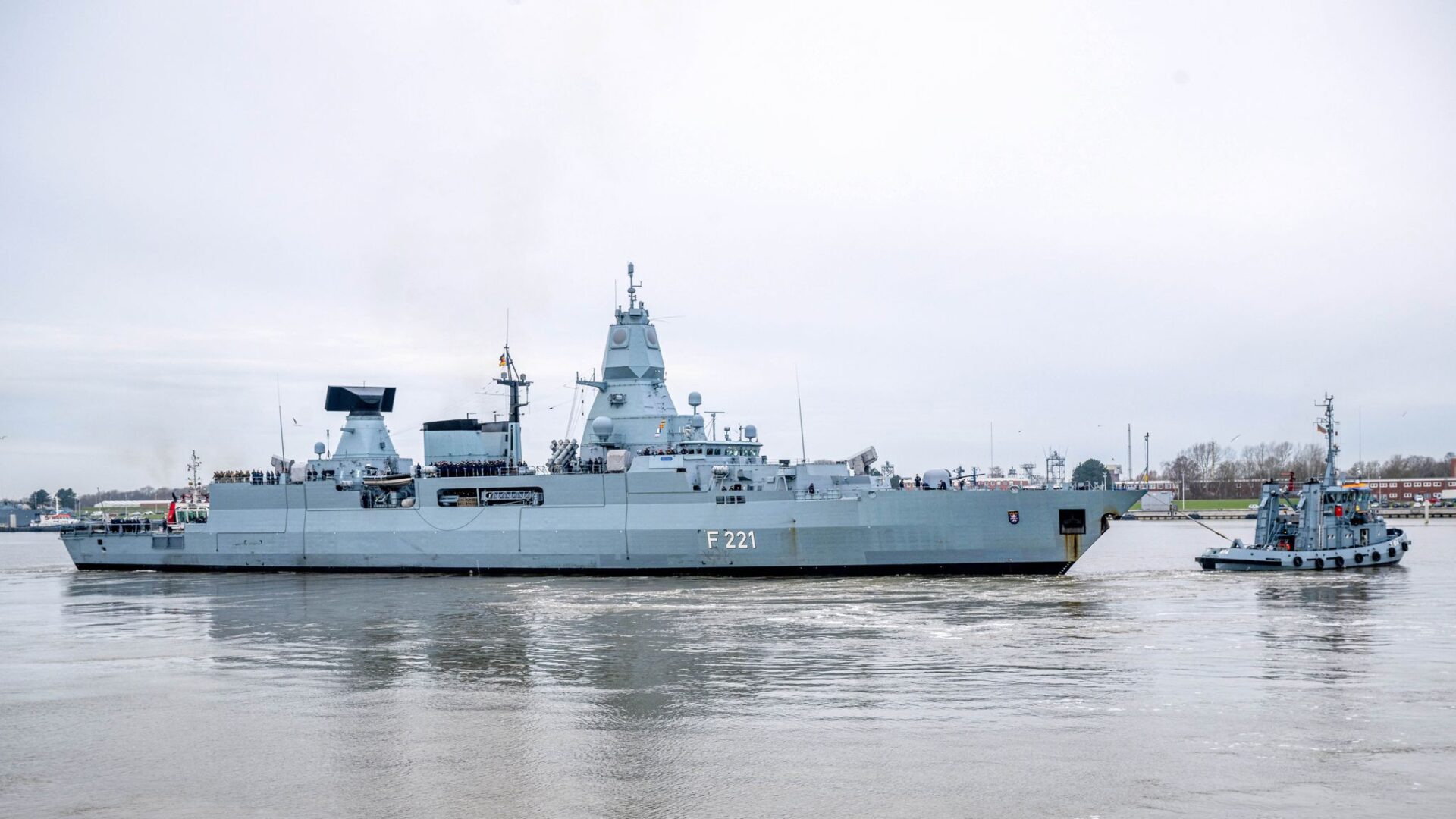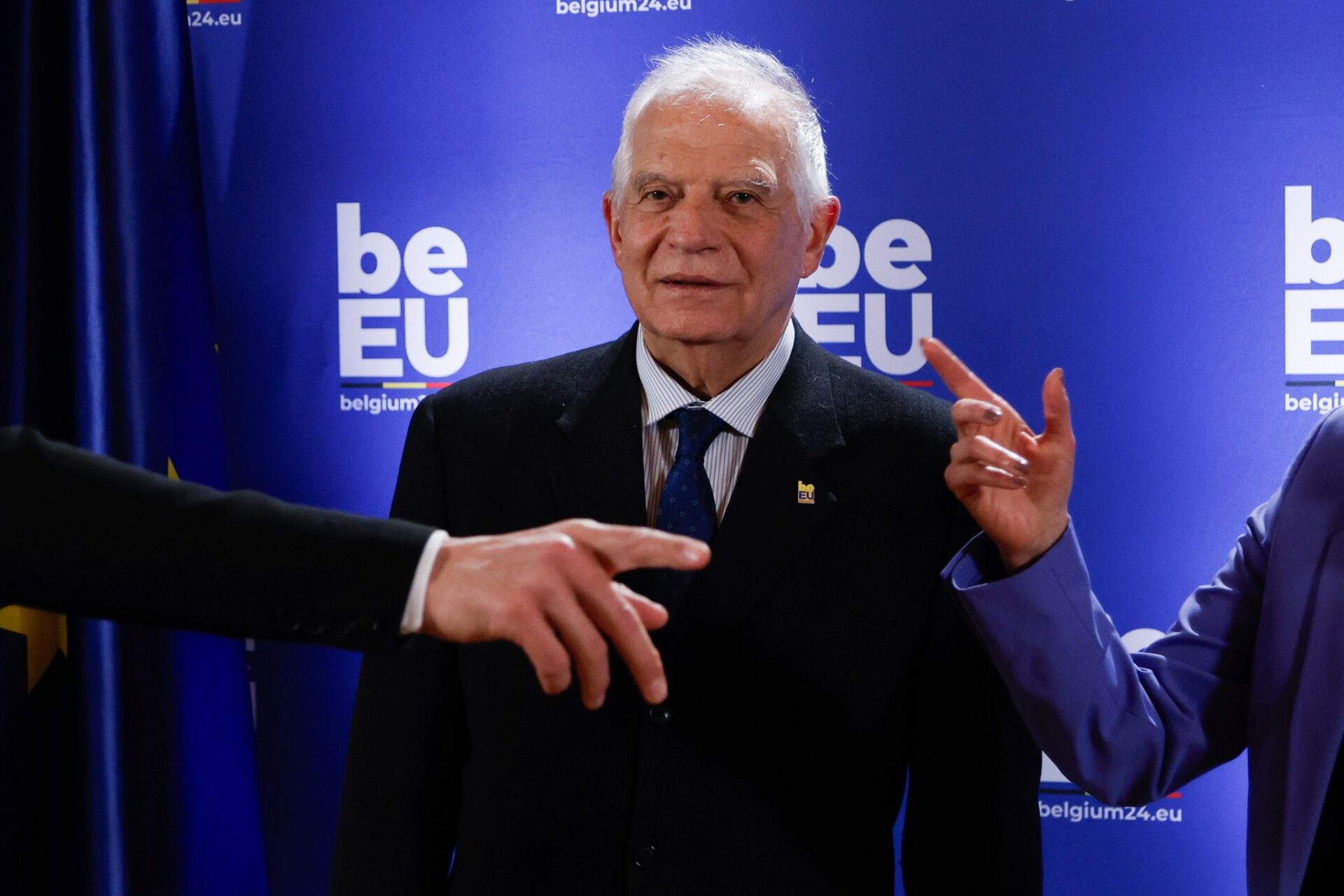 Have the article read by OpenAI (Beta). Please note that AI translations may take some time to process.
Have the article read by OpenAI (Beta). Please note that AI translations may take some time to process.At the Munich Security Conference, the EU’s High Representative for Foreign Affairs, Josep Borrell, stressed that the EU’s geopolitical agenda is being shaped by “three geographical challenges which are Ukraine, Gaza, and the Global South”. In addition the European defence has suffered “a long period of silent disarmament”.
He warned that “Russia will be tempted to increase its political and military provocations against NATO countries”. He added: “So the message is clear: We have a Russian problem ahead.”
Portuguese Foreign Minister João Gomes Cravinho stressed on Tuesday that Russian President Vladimir Putin “doesn’t just want a piece of Ukrainian territory, he wants to destroy the European project and that’s why it’s crucial that we don’t allow him to win in Ukraine”.
The EU’s chief diplomat Borrell stressed that “the war in Ukraine and in Gaza has increased tremendously the political space of the Global South vis-a-vis us”. A confrontation between “the rest against the West” must be avoided, since “for Russia, this new geopolitical scenario has dramatically increased its position” since Israel’s response after October 7, he warned.
Given the Israel-Hamas war, after a meeting of the bloc’s foreign affairs ministers on Monday, Borrell called for more unity in the EU, if the bloc wants to play a geopolitical role in the Middle East. He said he saw “dispersion of approaches and many member states want to play their own game”.
Call for humanitarian pause in Gaza strip vetoed by Hungary
On Monday at the Foreign Affairs Council, all EU countries except Hungary called for an “immediate humanitarian pause that would lead to a sustainable ceasefire, to the unconditional release of hostages, and to the provision of humanitarian assistance”. However, it was the first time since October 7, 2023, that the vast majority of EU member states had been able to reach a consensus for a ceasefire in Gaza.
“I know very well that if there is no unanimity, there is no position of the European Union, but there can be a sufficiently majority position, which without being formally a position of the European Union, represents the majority position. And 26 out of 27 certainly is,” Borrell said.
Sanctions against Israeli settlers in the West Bank
After Hungary blocked on Monday the EU from approving sanctions against Israeli settlers who have attacked Palestinians in the West Bank, now Spain, France, Ireland and Belgium have decided to impose sanctions on violent Israeli settlers unilaterally.
“I have been pushing for it [unanimity] during the meeting, one state did not want to join. There were 26 of us who agreed,” Spanish Foreign Minister José Manuel Albares said.
The Spanish government is preparing an initial list of dozens of people who have carried out violent acts against Palestinians in the West Bank, according to Albares, who added that the sanction will consist of a ban on entry to Spain.
Other European countries, such as Ireland and Belgium, have also signalled their willingness to impose sanctions on individual settlers, something the United States has already done.
At the same time, Albares assured that Spain will continue collaborating with the UN agency for Palestinian Refugees, UNRWA, and confirmed that they are preparing a new package of financial support in addition to the 3.5 million euros already announced and the ten million delivered in December.
“The work of this organisation is essential to meet the needs of almost six million displaced Palestinians,” not only in Gaza but also in the West Bank and other countries in the region, he said, and stressed that its role “has no possible substitute”.
Albares indicated that he asked to have an evaluation carried out on a possible breach of international humanitarian law by Israel based on the association agreement of the community bloc with that country.
EU launches Red Sea mission
In response to the attacks by Iran-backed Houthi rebels in Yemen on the Red Sea shipping route, the EU decided on Monday to formally launch a naval mission to protect shipping in the area. The dozens of Houthi attacks have roiled shipping in the Red Sea, forcing some companies to take alternative routes including a two-week detour around the tip of southern Africa.
The Houthis have been harassing the vital shipping lane since November in a campaign they say is in solidarity with Palestinians in Gaza during the Israel-Hamas war.
The European Union aims to have the mission called Aspides (ancient Greek for “shield”) and running in a “few weeks” with at least four vessels, an official said on February 16, 2024.
“Europe will ensure freedom of navigation in the Red Sea, working alongside our international partners,” European Commission President Ursula von der Leyen said in a post on X.
“The constant attacks of the Houthi rebels threaten global trade and of course endanger our ships. And I say ‘our ships’ because Greece has the largest fleet of any other country in terms of commercial shipping and that is why Greece immediately stood in favour of coordinated action by taking over the regular command of the European defence operation ‘Aspides’ from the Headquarters of Larissa,” said Greek Prime Minister Kyriakos Mitsotakis.
The United States is already spearheading its own naval coalition in the area and has conducted retaliatory strikes on Houthi targets in Yemen, as has Britain.
Egypt’s President Abdel Fattah al-Sisi said that revenues from the Suez Canal, which links the Red Sea with the Mediterranean, had fallen “40 to 50 percent” so far this year. The canal, which brought in 8.6 billion dollars (7.95 million euros) in the 2022-23 fiscal year, is a vital source of foreign currency for Cairo, which is suffering from a severe financial crisis.
So far France, Germany, Italy and Belgium have said they plan to contribute ships. The overall commander of the EU mission will be Greek, while the lead officer in operational control at sea will be Italian.
The EU says the mission’s mandate, set initially for one year, is limited to protecting civilian shipping in the Red Sea and that no attacks will be carried out “on Yemeni soil”.
Germany’s Defence Minister Boris Pistorius sees the dangerous deployment of the frigate “Hessen” in the Red Sea as a sign that Germany is willing and able to take on international responsibility but called the mission also “the most dangerous deployment of the navy in decades”.

NATO’s Eastern flank: Bulgaria and Czech Republic
Following the Munich Security Conference, Bulgarian Prime Minister Nikolay Denkov said after conferring with US Secretary of State, Anthony Blinken, that Bulgaria is a key country in the efforts to protect the Black Sea region, and NATO’s Eastern flank.
Bulgaria’s prime minister pointed out that the current problems could be used as opportunities for the development of the region and for positioning Bulgaria and NATO in a way that would ensure stability. “We are very committed and that is why we are here with Mariya Gabriel [Bulgaria’s deputy premier] to work together where Bulgaria belongs – in the structures of Europe and NATO, as a reliable partner,” Denkov emphasised.
The Czech President Petr Pavel said at the Munich Security Conference on Saturday that the Czech Republic had found sources abroad for hundreds of thousands of artillery rounds, which it could deliver to Ukraine within weeks if it and its partners in the United States, Germany, Sweden or other countries could secure funding. Czech Defence Minister Jana Černochová added that the countries that could cooperate on the ammunition shipments are making participation conditional on not disclosing specific details about them.
Fact Check
Russian disinformation: Fake news against Ukraine support
Since the Russian invasion of Ukraine, disinformation has been an important part of the Russian arsenal. After nearly two years of war, Moscow’s propagandists have shifted their focus to undermining Western support for Kyiv, recognising its central role in maintaining Ukraine’s resilience. Recent investigations by the AFP news agency have unveiled falsehoods, ranging from fake anti-Ukrainian posters in New York to forged documents alleging lavish property acquisitions by Ukraine’s leadership.
Here is a fact check in German on Russian disinformation: https://faktencheck.afp.com/doc.afp.com.34JE8CY
This article is published weekly. The content is based on news by agencies participating in the enr.
